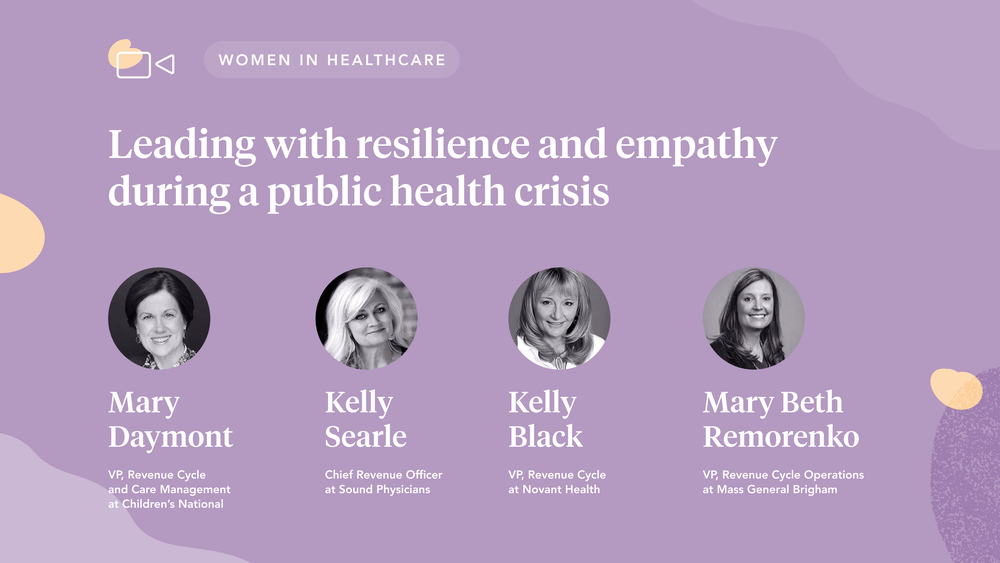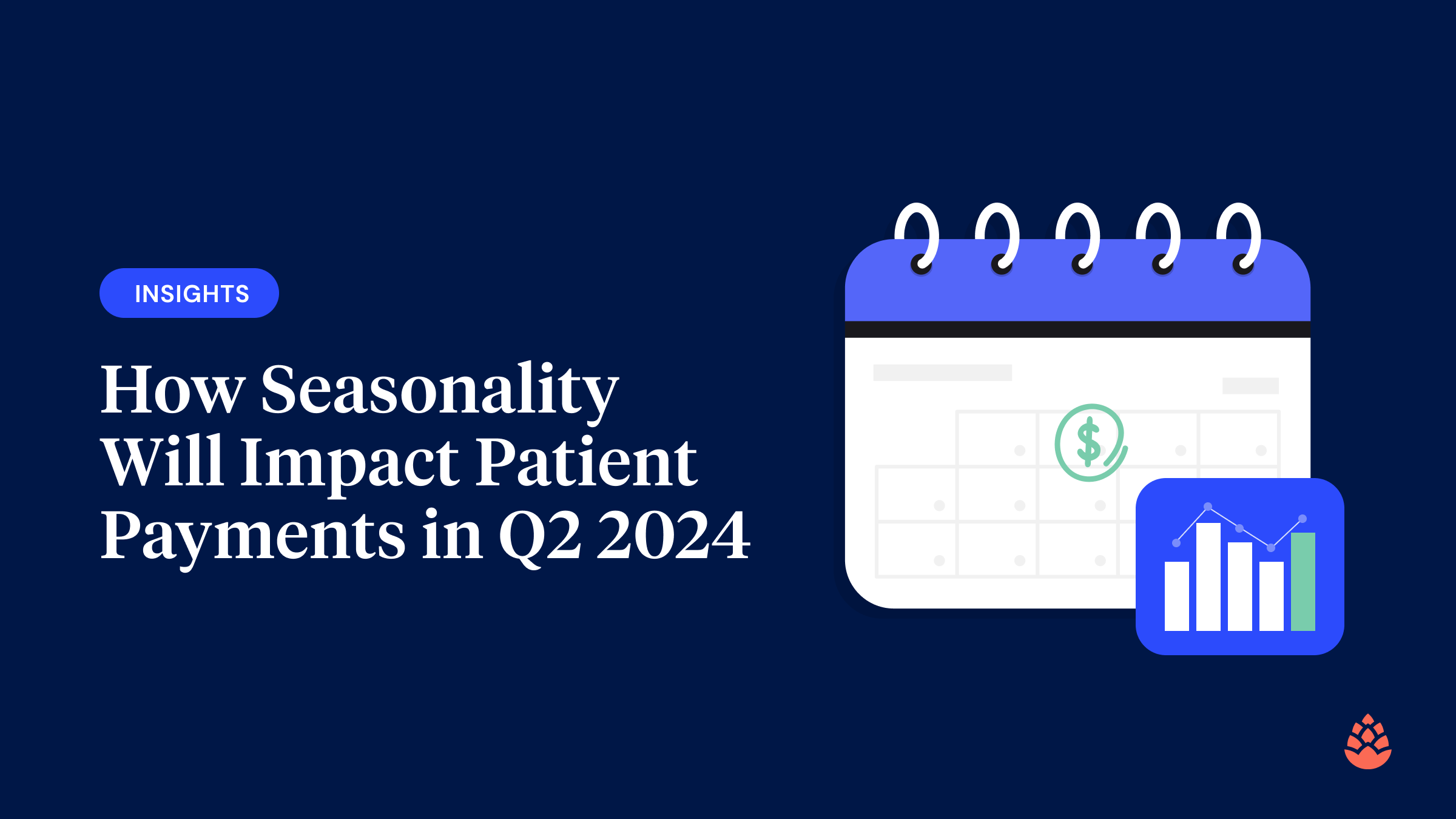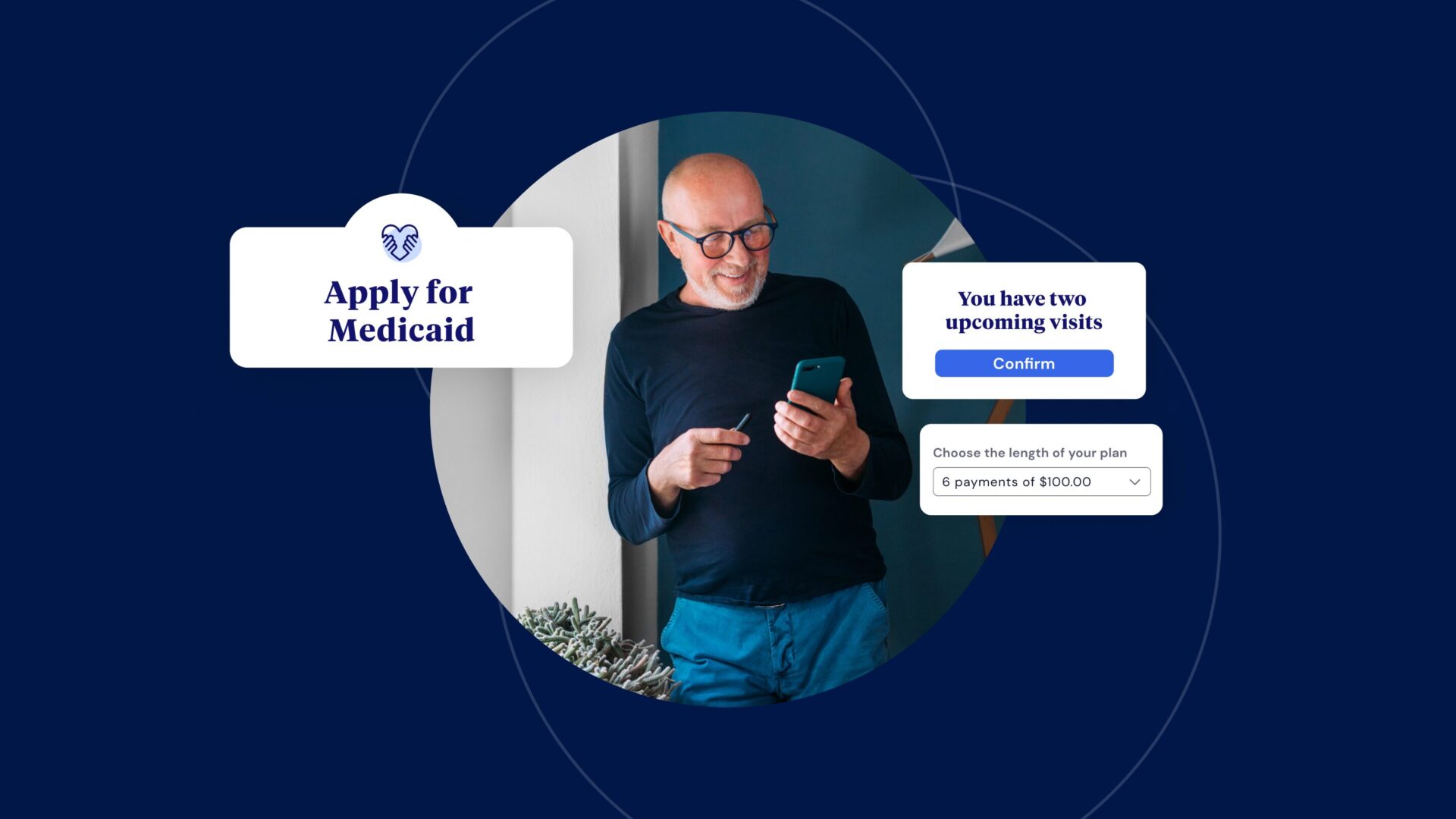On December 15, Cedar hosted a special panel discussion with four women leaders in revenue cycle management who highlighted their approach to resilient and empathic leadership during COVID-19.
Moderated by Cedar Vice President of Partnerships Stephanie McCray, panelists included Children’s National Health System Vice President of Revenue Cycle and Care Management Mary Daymont, Mass General Brigham Revenue Cycle Operations Vice President Mary Beth Remorenko, Sound Physicians Chief Revenue Officer Kelly Searle and Novant Health Revenue Cycle Vice President Kelly Black.
The panel kicked off with a discussion on leadership opportunities for women in revenue cycle. According to the panelists, there’s ample leadership opportunity in traditional areas like finance, accounting and strategy. But because women are a minority in the function, they can bring fresh and diverse viewpoints to the table enabling them to add unique value by leading with compassion and vulnerability.
An important part of this leadership style is fostering diversity, according to Searle, who emphasized the power of hiring practices; admitting unconscious bias in hiring and tackling it head on can be transformational. “Just by being aware [of unconscious bias], it really gives you the opportunity to change things,” she said. Daymont agreed and called out the effectiveness of staff panel interviews; by giving diverse front line employees a voice in hiring you automatically foster staff inclusion while bringing a diverse outlook to team building.
Hear from the panelists discussing leadership and diversity at 3:07 here.
The value of mentorship & learning from challenges
When asked about what makes a great mentor, panelists highlighted different attributes. Searle underscored honesty above all, but pointed out that it needs to be combined with authenticity, kindness, compassion, and based on deep relationships. “If you want to have a culture of feedback, have a culture of relationships,” she said.
Black emphasized intentional observation and “informal” mentorship. “I’ve gotten some of my best ideas by watching other leaders who are successful – their mannerisms, the way they handle conflict or stressful difficult situations,” she said. “You can learn so much just by paying attention to other folks and how people respond to them if you really want to grow and learn.”
“Every adversity is an opportunity for an improvement,” Daymont added, saying she encourages her teams to embrace challenges as learning opportunities.
Hear more at 11:35 here.
Adjusting to build connections and serve patients under COVID-19
All panelists agreed that they needed to rapidly move to a remote work model and used the opportunity as much as possible to foster collaboration using tools like Zoom and Microsoft Teams while supplementing with recognition programs, newsletters and other communications.
Daymont said that telehealth use at Children’s National had risen exponentially this year, satisfying both patients and physicians. At the same time, she called out touchless registration as an area that needs improvement. “There’s too much ‘touch’ for patients that have to come into our medical centers,” she said. “It would be really nice if everything was done and they could literally click ‘I’m here’ and the person behind the plexiglass said, ‘Great, go to room three,’ and have that be all of your insurance verification, patient identification…all of those things ‘ticked’ and ‘tied’ before the appointment.”
Navigate to 41:06 for more here.
Adjusting digital priorities
Given the rapid changes of 2020 and the accompanying increased urgency around digital health options, panelists talked about how they juggled often conflicting priorities in their digital strategies.
Searle said Sound always put a premium on post-visit communication, but ramped up its priority this year, focusing on behavioral analytics around patient responses, demographics, payment times, messaging/wording and payment flexibility.
“We’re really looking at our portal and outreach as an opportunity to engage with – not to bill – patients, and it’s a game changer,” she said.
Remorenko pointed to surveys indicating dissatisfaction with medical billing’s lack of transparency. She explained Mass General Brigham’s work to improve in this area including offering financial counseling, assistance, estimates to avoid surprise billing, and even pausing collection activity in the spring. “Any sort of programs that we can be proactive about helps us and helps the patients,” she said.
Learn more at 44:03 here.
Leading with empathy
Toward the end of the event, panelists spoke about concrete initiatives and philosophies around empathic leadership. Black discussed the Novant Hope for Remarkable Team Aubergine Fund that has raised over $10 million to support team members on the front lines. The fund was created for those undergoing hardship due to reduced hours, job losses, child care pressures, potential virus exposure and other COVID-19-related financial needs.
“This helped [team members] know that the company that they worked for cared for them and continues to care for them,” she said.
Daymont applauded the initiative and pointed out that, “empathy begins at home” and has a knock on effect for patients. “If you are empathetic with your team and your staff and you show them genuine empathy, they turn around and treat clients the same way.”
For full remarks, navigate to 49:03 here.
For the panelists’ full views on all the above, plus revenue cycle priorities, adjusting to mandatory price transparency, advice to young aspiring women in healthcare and much more, watch the full replay here.
To be notified of upcoming Cedar virtual events, click here to join our mailing list.



